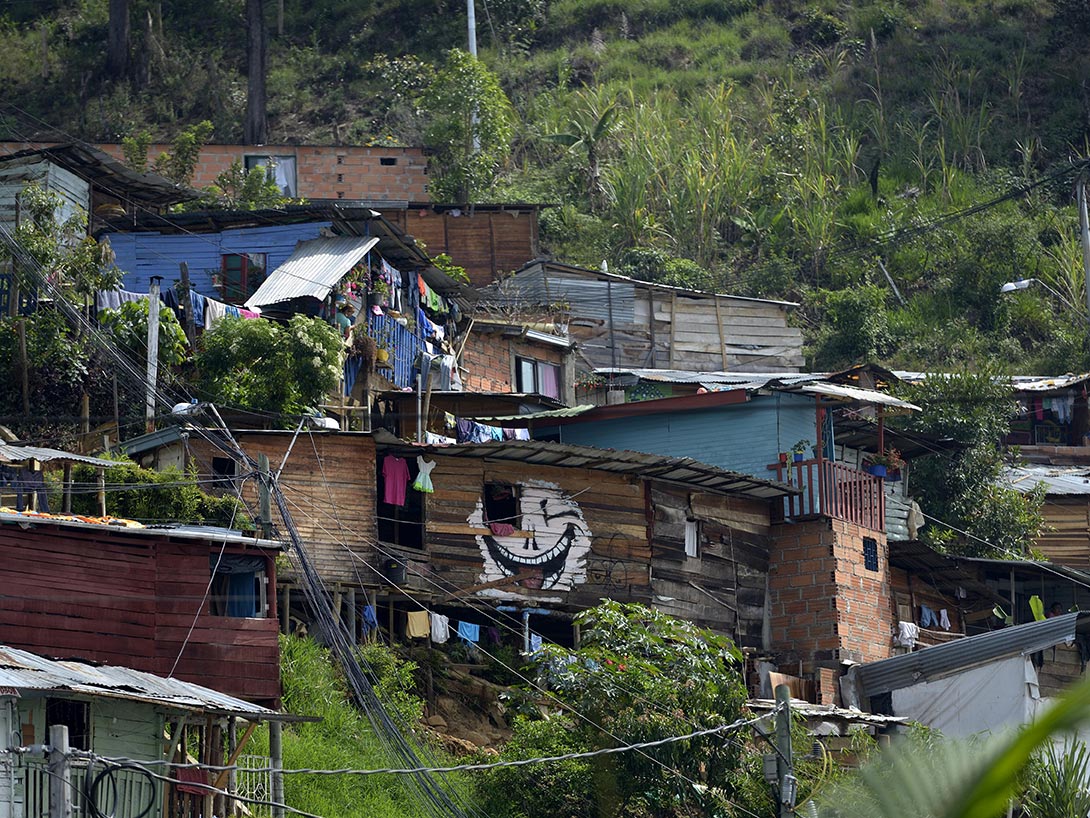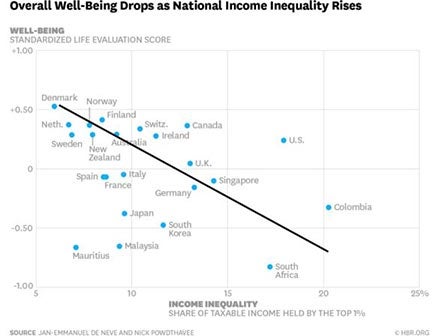Increasing wealth of world's richest one per cent harms well-being of everyone else
'As the top one per cent races ahead, it seems to depress society across the board'

As the world’s wealthiest people become richer, levels of life satisfaction and well-being are dropping across the whole of society, new research has found.
A study from Cornell University, the London School of Economics and Said Business School at the University of Oxford has found that as the share of income held by the top one per cent in many countries around the world continues to rise, the wellbeing for the other 99 per cent increasingly suffers.
Oxfam said the research reinforced the evidence that inequality was "bad for social cohesion... economic growth and... democracy".
In the report, the researchers said: “Reported levels of life evaluation are lower and those of negative emotional well-being are higher when the share of income held by the top one per cent is high.”
Jan-Emmanuel De Neve, from the Said Business School, told The Independent: “As the top one per cent races ahead, it seems to depress society across the board.”
Dr De Neve said the reason behind this was because it extended “the range of aspirations” of becoming wealthy for everyone else. This reflected on their psychological state and therefore affected their wellbeing.
Colombia, where there are high levels of unemployment, instability due to conflict, and a lack of a welfare state, had the highest level of income inequality and one of the lowest levels of well-being, according to the research.

According to Dr De Neve, the top one per cent in Colombia took home 20 per cent of the country’s "economic pie" while the level of well-being stood at 6.1 out of 10.
People in Scandinavian countries, where wealth is redistributed more equally through the tax system and welfare state, had the highest levels of well-being. In Denmark, the top one per cent took home six per cent of the country’s wealth and the average level of well-being was 7.8 out of 10.
In the UK, the top one per cent took home 13 per cent of the country’s wealth and the average level of well-being stood at 6.9 out of 10.
The research, which was published in a working paper called ‘Top Incomes and Human Well-being Around the World and used data from the Gallup World Poll and the World Top Incomes Database, also found that the richest people experienced the most negative emotions.
Nattavudh Powdthavee, from the London School of Economics, said the results showed that income inequality mattered “to the life evaluation of the average person”.
“Other studies have demonstrated the strong links between unhappiness and low productivity, the increase in sick leave and stress; policymakers may need to pay more attention to the wider consequences of the rising share of income the top one per cent enjoy.”
Nick Bryer, the head of inequality campaigns at Oxfam, said: "This adds to a growing body of evidence that extreme inequality is bad for everybody. It is bad for social cohesion, it's bad for economic growth, and it's bad for democracy."
"Too often, a wealthy and powerful elite are able to rig the rules so they work for them, at the expense of the rest of us. Oxfam's mission is to achieve a world without poverty - and we know that that is possible, but the maths says we can only do it if we tackle extreme inequality. "
Join our commenting forum
Join thought-provoking conversations, follow other Independent readers and see their replies
Comments
Bookmark popover
Removed from bookmarks